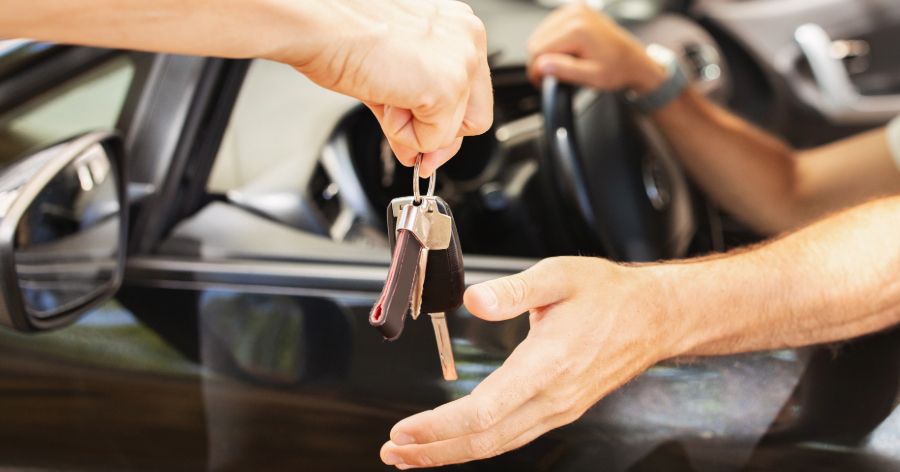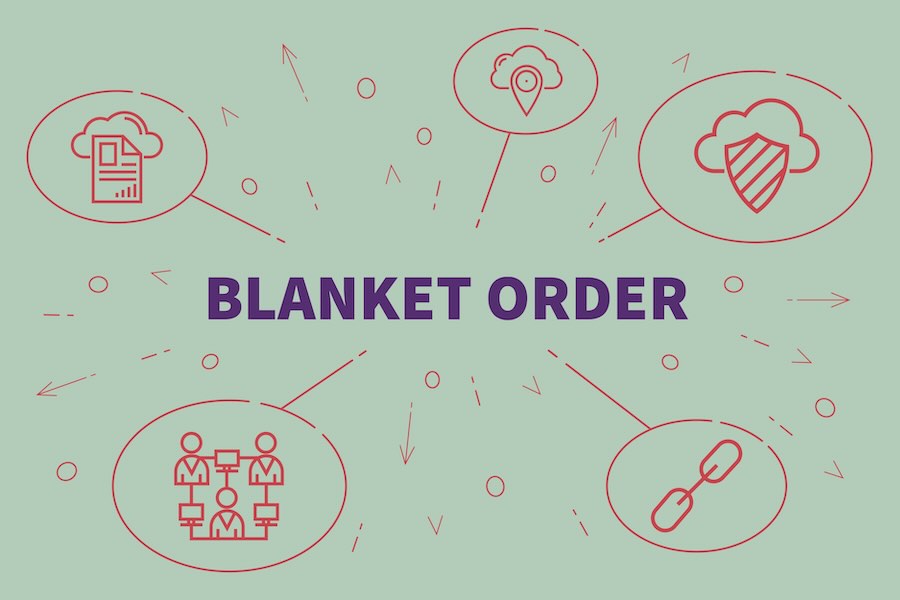
Valet parking is a service offered in restaurants, hotels, shops, and other establishments where guests leave their vehicles in the hands of a valet for parking. It not only lets businesses manage parking traffic flow but also saves time and relieves the burden of parking for customers—which helps create a better dining experience overall.
In this article, we break down how valet parking works, expected costs, pros and cons, and alternatives. Read on to determine if this service is right for your food business.
What Is Valet Parking?
Valet parking is a service, either complimentary or for a small fee, that entails leaving the car in another person’s hands for parking. A “valet” will receive keys from the car owner and park their car for them in a designated area. Once the customer is ready to leave, the valet will retrieve the car and have it ready for the customer outside the business establishment.
This service removes the hassle of parking a car, saves time by dropping the customer off in front of the business, and lets businesses manage the flow of parking traffic. This service is especially useful in crowded cities or places where parking is a challenge.
To offer a valet service, you can work with a third-party company—for bigger cities, this is usually the way to go, especially with the various regulations you may need to adhere to. If this is not your preferred option, it is possible to establish your valet service. A restaurant I worked at in Buffalo, NY, offered an in-house team, and this was easily done as it had its own parking lot. When you own your own lot, having an in-house valet service may be more cost-effective.
How Valet Parking Fees/Costs Work
Valet companies usually charge restaurants a flat rate for larger events or an hourly rate per person hired as a “valet” at your restaurant. The hourly rate built into each valet driver’s fee is higher than what the driver is actually paid, as any extra money is how the valet service makes a profit. A third-party service (whether the company or lot owner) may also charge a restaurant to cover lot maintenance and upkeep costs.
Individual valet drivers earn an hourly wage that is set higher to account for tips, or a set rate with the expectation that tips will be provided by customers.
Valet companies will provide traditional parking services for restaurants and can also provide lot management for bigger events. How much the customer pays will be up to the restaurant owner. I have worked at restaurants where valet parking is complimentary and others where a fee of $10-$20 is required to use the service. If tipping is an option, $5-$20 are typically the amounts given to a driver.
Partnering With a Valet Company
To get started partnering with a valet company, identify reputable companies in your area—talk to other local restaurants and see the companies they work with and if it is right for your business. Additionally, you can look in local industry Facebook groups and ask around for recommendations.
Speak to two to three companies to find the right fit for your business. When vetting these companies, be sure to ask if they have the correct licensing and insurance needed to operate their business at your restaurant. You will also need insurance to cover liabilities to your business, so talking to a professional in the space is advised.
Some of the insurance you will need are general liability insurance, garage keepers liability, and workers comp. These insurance types help cover small businesses for employee, customer, property, and guest property injuries, damages, or losses. They are essential to protecting your business financially and legally. These same policies should be acquired by the valet service companies you hire.
Here are some key points to discuss with prospective valet service options:
- The volume of cars you expect daily
- Special needs (e.g. special events your restaurant hosts)
- Maximum price you would want to charge customers
- Parking location specifics
- How the business handles vetting drivers
- How valet drivers will manage keys and vehicles
What to Expect from a Valet Contract
You need a valet contract with a reputable company to offer this service at your restaurant. Below are some of the aspects to expect from a valet contract:
- Typical contract duration: Valet contracts can be agreed upon to either monthly or annually paid contracts. For more long-term service, annual contracts are often the standard.
- Typical contract terms: The terms of the contract will first lay out the scope of the responsibilities for each party. Additionally, information such as service hours and availability will be sorted out.
- Fee structure and payment terms: The contract will go over the fee structure and payment terms agreed upon by both parties. It is important to look this over to ensure you are paying what you agreed upon.
- Valet responsibilities: Responsibilities such as providing signage, vehicle types being serviced in the process, where the vehicles will be parked, and the process of receiving, parking, and retrieving will all be laid out here.
- Responsibilities of the partnering business: This will outline the responsibilities of the restaurant, such as maintaining the lot and offering proper tools for the valet service to use.
- Condition of lot: An understanding of who is responsible for managing the lot and how it will be kept during service and upon completion of service will also be included.
There will be other minute details in the contract, and some other terms can be added in. The above is a baseline for what you could expect to see in the contract. It is important to work with an attorney and your insurance agent when forming a relationship with a valet service company.
Pros & Cons of Working with a Valet Company
Below are the items to consider when deciding if a valet company is best for you.
Pros
- Convenience for customers: The biggest draw for offering a valet system at a restaurant is convenience for guests. The ability to not have to worry about parking can be a differentiator for your business, especially in busy urban settings.
- Management of parked cars: Having a valet service also lets you control how parking is organized for your business. When busy, parking can be something that impacts a customer experience and clogs up the area around your restaurant. Valet parking streamlines this area and keeps things moving.
- Premium service: A valet service gives a restaurant a more premium feel, and can really add to the “hospitality” provided to those dining at your restaurant.
Cons
- Added insurance: As a business, adding on additional insurance and incurring more legal liability for the service used can be a risk some may not want to take.
- Trusting in other management: Another risk of offering a valet service is being at the whim of the valet company managing their employees. Valet employees may not be held to the same standards as your restaurant staff, so you run the risk of poor service.
- Additional cost: The obvious drawback is the cost of offering the service. Restaurants have tight margins, and it can be difficult to afford a valet service. So, ensure the cost is worth it for your customer base before committing.
Valet Alternatives
If offering a valet service is not in your budget or not a risk you want to take, there are other alternatives you can consider:
- Self-parking for customers in a lot: The most obvious option is to let customers park their vehicles in your lot if you have one. This option saves money but can also cause customers not to dine with you if they cannot find a spot.
- Self-parking for customers in garages: If you do not have a parking lot, then parking in a garage near the restaurant will be the next best bet for a customer. Parking garages can incur high costs, be congested, and cause parties to arrive late if full.
- Street parking: Street parking is another available option for guests, but it can be difficult to impossible in busy cities. Additionally, street parking comes with fees, and parking tickets can be a huge cost. Requiring street parking can deter some customers, and you’re likely to see more late-arriving guests as they get delayed looking for parking.
- Guests arriving via apps or public transport: If parking is not offered, customers may decide to arrive by public transport or through an app such as Uber. You can avoid traffic snarls by providing signage directing drivers where to drop off customers.
- Providing your own valet service: As mentioned earlier, some restaurants decide to provide their own valet service. This does require staff, proper insurance, training, and permits and can be a hassle to do on your own.
As you can see, there are other options that many restaurants use when they do not have valet. That being said, offering valet is a bonus that provides peace of mind. Guests should be excited to come to your restaurant, and if parking is a hindrance, it can negatively impact their overall experience. If valet parking is an option, it can truly relieve and elevate a customer’s experience.
Frequently Asked Questions (FAQs)
These are some of the most common questions we see people ask about restaurant valet parking.
Providing a valet service to your customers is often optional, but there are certain business cases where this service makes sense. If your business is in an area where parking is limited or managing the parking is difficult, valet service is more warranted. When a valet service helps get customers to choose your business, then this is when it is a good idea to provide it.
A valet service can cost a restaurant anywhere from $1,000-$5,000, depending on how many drivers it operates and the size of your lot. The cost of a valet parking service may well be worth it if it reduces friction for customers to dine at your restaurant. If your restaurant has high demand but has parking issues, then a valet service will be worth the cost.
The most common insurance type for a valet service is general liability insurance. The same will go for the restaurant. It is important to discuss with an insurance professional regarding your business when considering offering valet parking.
You can ensure customers can trust your valet by choosing reputable businesses that have a structured organization and set operating procedures. By speaking with business owners in your area to vet valet companies, you can be assured of finding companies that keep your customer’s cars safe while they are dining. By using trusted services in the area, you can ensure the safety of the cars your customers need parked.
Bottom Line
As you can see, the process of hiring a valet parking company is very important. You are allowing an outside group to take part in serving your customers, and it is important to vet any business partner before bringing them on board.
In this article, we broke down what valet parking is, how it works, and what you should look out for when trying to introduce it to your business. Valet parking can be an excellent addition to a restaurant business when you find reputable companies to provide it.





